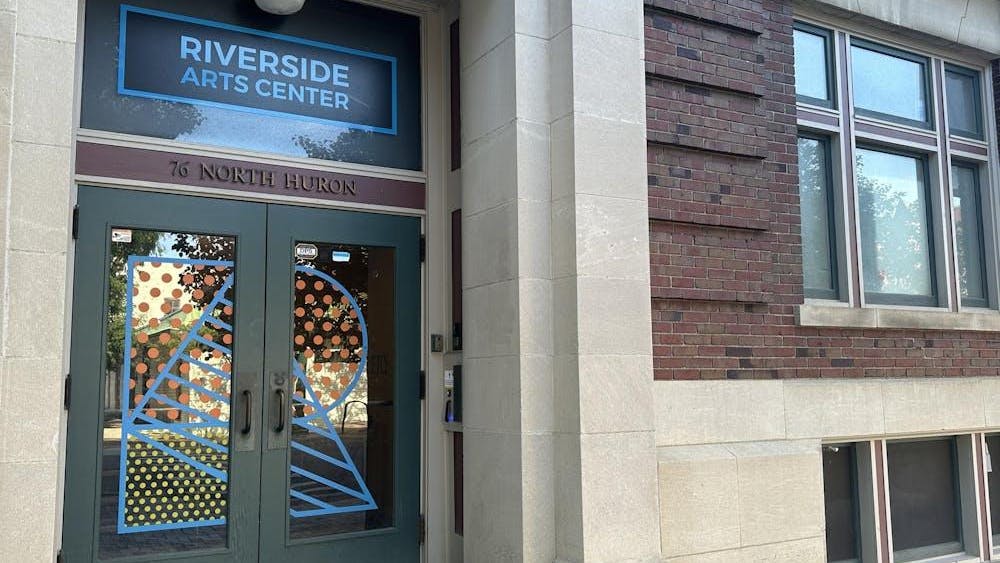As the showdown in Ukraine continues to escalate, Kiev said its conflict with Russia was moving into a “military” phase after a Ukrainian serviceman was shot dead in Crimea by Russian forces, The Irish Times reported Tuesday. The Eastern Michigan University political science department also decided to act by presenting an open forum presentation to the EMU community to address the crisis and what it might mean to international affairs, national security and the global economy.
At the moment, U.S. President Barack Obama and Russian President Vladimir Putin are involved in the biggest game of chicken since the Cuban Missile Crisis in October 1962. Professors Volker Krause, Judith Kullberg and Nitya Singh lent their thoughts regarding what may occur if neither side decides to give in.
“I really don’t see a diplomatic solution in the short term,” Krause said. “Ultimately, we and Russia need to realize we are interconnected.”
The U.S. and Russia are interconnected through the global economy, of which Russia is certainly a member. In 2012, Russia exported $524.6 billion worth of goods to countries around the world.
The current U.S. and European Union’s current strategy of deterrence is an increasing number of sanctions placed on Russia until they ultimately acknowledge Ukraine’s sovereignty and abandon Crimea.
The hope is that the sanctions placed on Russia will put domestic political pressure on Putin, forcing him to withdraw from Crimea. This pressure will come from the Russian oligarchs who control the majority of the wealth in the country and from the public. Russian citizens will be forced to pay for goods at exorbitant prices as the ruble, Russia’s form of currency, continues to be devalued from Russia, being removed from the world economy.
As the professors laid out the west’s plan of deterrence, they also addressed Russia’s view point on scenario and how it is playing out domestically within their country.
Andrew Felder, a senior at EMU was glad to have the opportunity to learn about Russia’s vantage point.
“I think that this gave a broader perspective [of the crisis in Ukraine],” Felder said. “You can look at the news stories but they don’t tell you the background of the countries, they tell you about the events going on right now but not how they came to be. I think that Dr. Krause and Dr Kullberg did a wonderful job giving some context to the Russian perspective.”
Ryan Sanabani, a junior studying international affairs at EMU, agreed with Felder.
“Professor Kullberg did not just focus on the U.S. perspective,” Sanabani said. “She tried to give a balanced idea on both perspectives. What do the Russians think and how the history of U.S. intervention in other countries affects the Russian public opinion [of America] and how Putin uses that to his advantage.”
Kullberg said while she may not agree with the Russian perspective, it is important to understand it in order to deal with them diplomatically. She has some ideas regarding a solution to the crisis in Ukraine.
“It is interesting that in the United States whenever we raise that question the focus shifts to Russia,” Kullberg said. “So how do we treat Russia? What sanctions do we apply to Russia? What penalty can we make Russia pay for what it’s done? We don’t look at ourselves and say ‘Is there some way we need to change what we’re doing?’ so that we are better able to work with Russia.”
EMU graduate Katie Collin brought a unique perspective into the discussion. She lived in Ukraine for almost two years following her graduation in 2010 working for the peace corp.
“I don’t know [if Crimea actually wants to be part of Russia],” Collins said. “I can say it has a Russian majority there. But there is certainly a minority of Crimean Tatars that absolutely don’t want that. If you actually had an election that occurred where the Russian military wasn’t there telling them what to say, I have a sneaky feeling what would happen.”








